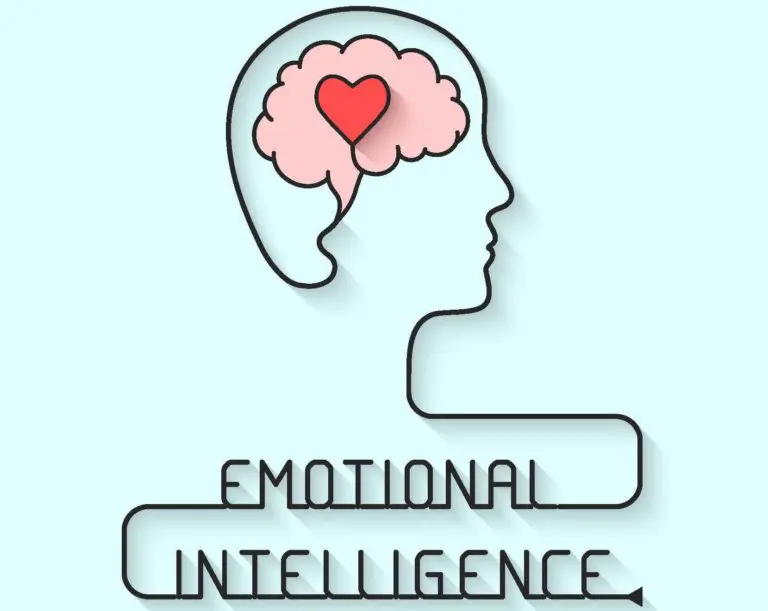
Why Smart Leaders Make Bad Decisions
Most people misunderstand emotional intelligence (EQ). They think it’s a “soft skill” that is mainly about being “in touch with feelings,” practicing empathy, or improving communication. That’s the surface level.
At the highest levels of leadership, emotional intelligence isn’t optional. It’s the hidden architecture behind presence, impact, and genuine leadership.
Emotions Are Data – Stop Ignoring The Most Valuable Intelligence You Have
Ignore emotions, and you operate with incomplete data—blind to the forces influencing your decisions, leadership, and organization. Leverage emotions as information, and you gain access to an intelligence most professionals overlook.
Top performers don’t suppress emotions—they recognize them as high-value signals shaping perception, decision-making, and influence.
- Anger signals a crossed boundary.
- Grief reveals something valuable has been lost.
- Anxiety highlights misalignment.
- Excitement confirms resonance and opportunity.
- Frustration signals untapped potential.
Ignoring emotional data is like navigating a city with a broken GPS—you’re not just missing turns; you’re operating on faulty directions that distort your entire route. Just like any data set, emotions need accurate interpretation—because not all signals mean what they first appear to.
Near Enemies: When Emotions Deceive You
Kelly Wendorf, my mentor and coach, teaches the concept of near enemies—emotions that masquerade as wisdom but subtly undermine it.
While we easily recognize “far enemies” (the obvious opposites of virtues—like hate being the opposite of love), near enemies are more dangerous because they feel like the real thing. Leaders who miss this distinction act on false signals, mistaking distortion for truth.
- Pity disguises itself as compassion, leading to enabling rather than empowerment.
- Hypervigilance masquerades as attentiveness, keeping you reactive instead of present.
- Anxiety feels like intuition, causing hesitation at the wrong moment.
- Resignation looks like acceptance, making inaction feel like wisdom when it’s avoidance.
This is where real emotional intelligence is tested—not just in feeling emotions, but in distinguishing true signals from deceptive ones. The most powerful leaders don’t just trust their emotions—they interrogate them.
- Is this fear or intuition?
- Is this patience or avoidance?
- Is this alignment or just comfort?
Leaders who develop this level of precision cut through emotional noise faster—and that clarity gives them an undeniable edge.
The Hidden Cost Of Emotional Supression: Energy Leaks
Performance isn’t just about time management—it’s about energy management. Your ability to sustain peak performance isn’t determined by how many hours you work, but by how well you manage your physical, emotional, and mental energy. Leaders who fail to regulate their emotional energy drain themselves and their teams, leading to burnout, poor decision-making, and diminished impact.
Every time you suppress an emotion, you leak energy. Here’s why:
- Unprocessed Emotions Drain Mental Bandwidth
Suppressing emotions doesn’t erase them—it forces your brain into overdrive, burning energy just to keep them suppressed. The mental load reduces clarity, decision-making speed, and execution power.
- Avoidance Creates Internal Resistance
Pushing emotions down doesn’t resolve them—it stores them like an unaddressed system bug, creating inefficiency and friction.
- Emotional Suppression Shows Up Physically
Unaddressed frustration turns into chronic tension. Anxiety manifests as restlessness, shallow breathing, or fatigue. The longer emotions stay bottled up, the more they erode resilience.
- Repressed Emotions Demand an Outlet—Usually at the Wrong Time
What you resist persists. Bottled-up frustration eventually erupts in an unrelated meeting. Buried
fear shows up as hesitation at the worst moment. The energy leaks in ways that undermine
performance.
- Authenticity Requires Less Effort Than Pretending
Faking composure when you’re anxious? Exhausting. Leaders who integrate EQ don’t waste energy
on emotional censorship; they channel it into presence and impact.
The Shift: Manage Your State, Process Emotions Faster, Lead With Energy
Elite performers don’t waste energy fighting emotions. They recognize, process, and move through them quickly—freeing up capacity for clearer thinking, sharper decisions, and stronger leadership presence.
🚫 That frustration you ignore? → It festers into resentment, slowing execution.
🚫 That difficult conversation you avoid? → It turns into a culture problem.
🚫 That self-doubt you push down? → It becomes hesitation that costs you speed.
You’re not just managing a business—you’re managing your state.
🔹 Breath controls state → A simple four-second inhale, six-second exhale slows the nervous system, reducing stress and increasing clarity.
🔹 Somatic awareness increases resilience → Instead of labeling emotions as “stress” or “overwhelm,” observe the raw sensations (tightness, heat, constriction). This prevents
unnecessary mental spirals.
🔹 State drives impact → A scattered leader creates a scattered team. A grounded leader commands attention before they even speak.
Your ability to regulate your state is what makes you unshakeable
Make The Right Investment: Eq Is A Competitive Advantage, Not A Soft Skill
When organizations integrate emotional intelligence into leadership, they:
✅ Make faster, sharper decisions—by processing both logical analysis and emotional insight.
✅ Communicate with precision—by addressing real issues head-on.
✅ Build resilience—by leveraging emotions as assets instead of fearing them.
✅ Boost productivity by minimizing emotional reactivity and distractions.
✅ Strengthen accountability by fostering ownership over emotions and actions.
✅ Create a high-performing culture that’s resilient and hard to replicate.
✅ Develop winning teams where high-EQ individuals drive collaboration and trust.
Companies that fail at this? They drown in politics, reactivity, and unspoken tensions that slow everything down.
